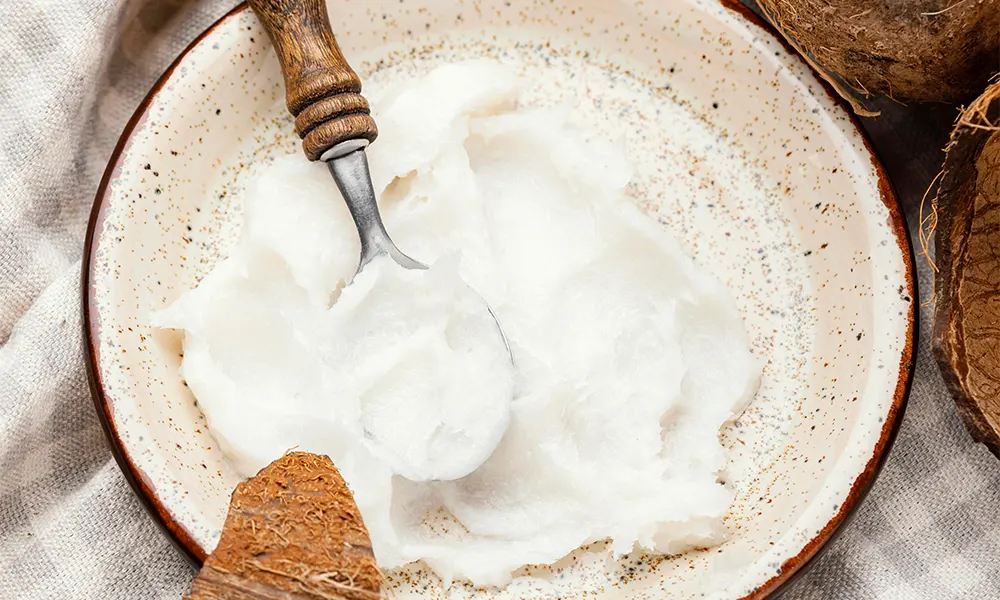Dealing with acid reflux often feels like navigating a maze, with burning sensations and discomfort around every corner. While antacids and lifestyle tweaks might offer some relief, many wonder about the role of diet in managing symptoms. One common question arises: Is yoghurt good for acid reflux? Known for its gut-friendly properties, yoghurt seems like a promising choice. But is it really a soothing balm for reflux sufferers, or can it sometimes exacerbate the issue? Let’s delve deeper into this creamy debate to find clarity.
Is Yoghurt Good for Acid Reflux? Understanding the Complex Relationship
The answer to whether yoghurt is beneficial for acid reflux lies in the details. While it may help some individuals due to its probiotic content and soothing properties, others might find it worsens their symptoms.
The Science Behind Acid Reflux and Yoghurt
Acid reflux, or GERD (gastroesophageal reflux disease), occurs when stomach acid flows back into the oesophagus, leading to irritation and discomfort. Yoghurt’s reputation as a digestive aid stems from its probiotics beneficial bacteria that promote gut health. These bacteria may help regulate digestion, potentially easing symptoms for some. But the high-fat content or acidity in certain yoghurts can trigger or worsen reflux in others.
Probiotics: Friends or Foes for Acid Reflux?
Yoghurt with live cultures contains probiotics, which help maintain a healthy gut microbiome. By improving digestion and reducing inflammation, probiotics might provide indirect relief for acid reflux. However, research is still inconclusive about their direct impact on reflux symptoms. So, is yoghurt good for acid reflux? While probiotics offer potential benefits, they aren’t a guaranteed solution.
Fat Content: A Double-Edged Sword
Full-fat yoghurts, though rich and creamy, may not be the best option for reflux sufferers. High-fat foods can relax the lower oesophageal sphincter (LES), the muscle that prevents stomach acid from rising. A relaxed LES increases the likelihood of reflux episodes. Low-fat or non-fat yoghurts are better alternatives for those looking to manage their symptoms.
Acidity Levels in Yoghurt
Some yoghurts, especially flavoured or fruit-infused varieties, contain added sugars and acids, which can increase their acidity. This added acidity may irritate the oesophagus, making symptoms worse. For those asking, Is yoghurt good for acid reflux? the answer may depend on choosing plain, low-acid options.
Choosing the Right Yoghurt for Acid Reflux
Not all yoghurts are created equal. If you want to include yoghurt in your diet while managing acid reflux, consider these tips:
- Opt for Plain Yoghurt: Avoid flavoured or sugary varieties.
- Choose Low-Fat or Non-Fat Options: These are less likely to trigger reflux symptoms.
- Check for Live Cultures: Look for yoghurts labeled with “live and active cultures” for probiotic benefits.
- Start Small: Test your tolerance by eating small portions and monitoring your symptoms.
- Consider Greek Yoghurt: With its higher protein content and thicker consistency, Greek yoghurt can be a more satisfying choice.
Is Yoghurt Good for Acid Reflux? Real-Life Insights and Expert Opinions
Anecdotal evidence suggests that yoghurt can be a helpful addition to a reflux-friendly diet for some individuals. However, experts caution against relying solely on yoghurt as a treatment. Instead, they recommend incorporating it into a broader strategy that includes dietary changes, weight management, and medical guidance.
Holistic Strategies for Acid Reflux Management
While yoghurt can be part of your acid reflux toolkit, it’s essential to adopt a holistic approach to manage symptoms effectively.
- Adjust Your Diet: Avoid trigger foods such as fatty dishes, caffeine, alcohol, and spicy meals.
- Maintain a Healthy Weight: Excess weight can increase abdominal pressure, worsening reflux.
- Alter Meal Habits: Eat smaller meals more frequently and avoid eating close to bedtime.
- Elevate Your Sleeping Position: Sleeping with your head slightly elevated can prevent nighttime reflux.
- Reduce Stress: Stress can exacerbate digestive issues, so explore relaxation techniques like yoga or meditation.
Final Thoughts
So, is yoghurt good for acid reflux? The answer is nuanced. While plain, low-fat yoghurt might help some individuals by soothing the digestive tract and providing probiotics, others may find their symptoms worsen depending on the yoghurt’s fat content and acidity. Ultimately, managing acid reflux requires a personalised approach, incorporating dietary changes, lifestyle adjustments, and, if needed, medical intervention.
Ready to take control of your digestive health? At Yo Hayo, we’re here to help you make informed choices. For expert guidance and tailored solutions, contact us today.
FAQs
-
Can yoghurt worsen acid reflux for some people?
Yes, yoghurt can worsen acid reflux for some individuals, particularly if it is high in fat or contains added sugars and acidic flavours. Full-fat yoghurt can relax the lower oesophageal sphincter, increasing the likelihood of acid reflux, while acidic ingredients may irritate the oesophagus. If you’re prone to symptoms, opt for plain, low-fat or non-fat yoghurt and avoid flavoured or sweetened varieties. Always pay attention to how your body reacts after consuming yoghurt to determine if it helps or hinders your reflux management.
-
Is Greek yoghurt better for acid reflux compared to regular yoghurt?
Greek yoghurt can be better for managing acid reflux because it’s thicker, less acidic, and often higher in protein compared to regular yoghurt. Its texture makes it more filling, which can help prevent overeating, a known trigger for acid reflux. However, choose plain, low-fat Greek yoghurt to minimise the risk of aggravating symptoms. Avoid Greek yoghurt varieties with added sugars, fruit flavours, or high fat content, as these can potentially worsen reflux. Always test with small portions to see how your digestive system responds.
-
How can I tell if yoghurt is a good choice for my acid reflux?
The best way to determine if yoghurt helps with your acid reflux is to start with small portions of plain, low-fat yoghurt and observe your symptoms. If you notice relief or no worsening of your symptoms, yoghurt might be a good addition to your diet. However, if you experience increased heartburn or discomfort, consider reducing your portion size or switching to another low-fat, low-acid alternative. Consulting a doctor or dietitian can also provide personalised guidance based on your condition.
-
Are plant-based yoghurts effective for acid reflux?
Plant-based yoghurts, such as those made from almond, soy, or coconut milk, can be a good option for individuals with acid reflux, especially if they are low in fat and contain no added sugars or acidic flavours. Many plant-based yoghurts are naturally less acidic than dairy yoghurts, which can be gentler on the digestive system. Look for varieties with probiotics for added gut health benefits. However, not all plant-based yoghurts are created equal, so always check the label for ingredients that may trigger reflux.
-
Can yoghurt replace medication for managing acid reflux?
While yoghurt may provide some relief for acid reflux symptoms, it is not a replacement for medication or professional medical advice. Acid reflux often requires a comprehensive management plan that includes dietary changes, lifestyle adjustments, and, in some cases, prescribed treatments. Yoghurt can be part of a healthy diet, but it should be seen as a complementary option rather than a cure. Always consult a healthcare professional to develop a tailored plan that addresses the root causes of your reflux symptoms.





